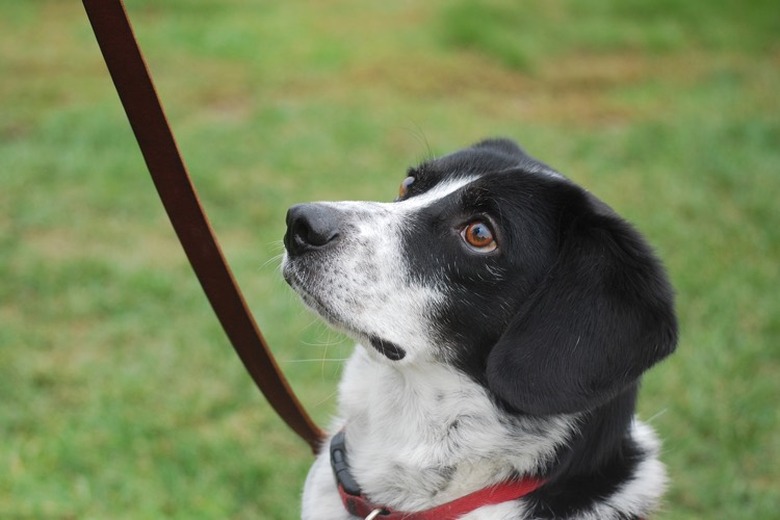My Dog Keeps Sitting Down When I Walk Him
Most dogs love going for walks. It provides them with essential physical and mental stimulation. However, if you notice that your dog sits down on walks, it could be an indication of a problem, such as anxiety, boredom, tiredness, or an injury or illness. Or, perhaps your dog's leash or harness doesn't fit properly and they're uncomfortable. Once you've determined the problem, you can work to remedy it.
Your dog may be bored
Your dog may be bored
Walks not only provide your dog with physical exercise but mental stimulation as well. If your dog starts sitting down on walks, he might be bored.
Spice up your daily walks by taking a different route. Stop and say hello to other people walking their dogs in your neighborhood. Go to the dog park to allow your dog to socialize with other dogs while he exercises. Offer to take a friend or family member's dog on a walk with yours.
Your dog may be anxious
Your dog may be anxious
Your dog may be sitting on walks because she is anxious or fearful. Other signs that your dog is anxious on walks include walking in a zigzag pattern, inability to take treats, turning around frequently to check things out, being startled by noises, attempting to escape from her collar, pulling to go home, freezing, refusing to walk forward on the leash, and constantly scanning the environment.
You can do several things to help your dog if she is anxious on walks. Start by taking short walks close to home. Walk the same route daily until your dog is comfortable with it. You can gradually go further distances and explore new streets.
Figure out what scares your dog and try to avoid those triggers when you can. If your dog is scared by traffic, for instance, try to go for walks when there is less traffic on the road. Alternatively, work on desensitizing and counterconditioning your dog to her triggers. Always praise your dog when she decides to investigate something she fears.
Your dog may be tired
Your dog may be tired
Another reason a dog sits down on walks is if he is just plain tired. Do some research and consult your vet about your breed's specific exercise needs. High-energy breeds, such as border collies and Siberian huskies, will be able to take longer walks than low-energy breeds, such as French bulldogs and Shih Tzus. Too little exercise is as bad as too much exercise, so it's important to know your dog's physical activity needs.
Your dog may be distracted
Your dog may be distracted
Distractions could be the reason your dog keeps sitting down suddenly on walks. Perhaps your dog smells something new, sees another person and wants to meet him, sees another dog and wants to socialize with him, sees a squirrel she wants to chase, or finds something on the ground she wants to eat.
You can get your dog's attention and continue your walk by offering her a treat. Be careful with this method, though. Offering your dog a treat every time she stops and sits down midwalk is likely to encourage your dog to do it more often.
Your dog may be injured or ill
Your dog may be injured or ill
If your dog keeps sitting down abruptly on walks, he may be injured or ill. Examine your dog for blisters, cuts, and scrapes on his paws and legs. In the absence of obvious injuries, your dog could be experiencing pain or discomfort from another condition.
A few of the conditions that can cause pain in dogs include osteoarthritis, a pulled muscle, intervertebral disc disease, hip dysplasia, infection, a torn ligament, nerve damage, and bone cancer. If you believe your dog is in pain, please take him to the veterinarian for a proper diagnosis and treatment plan.


